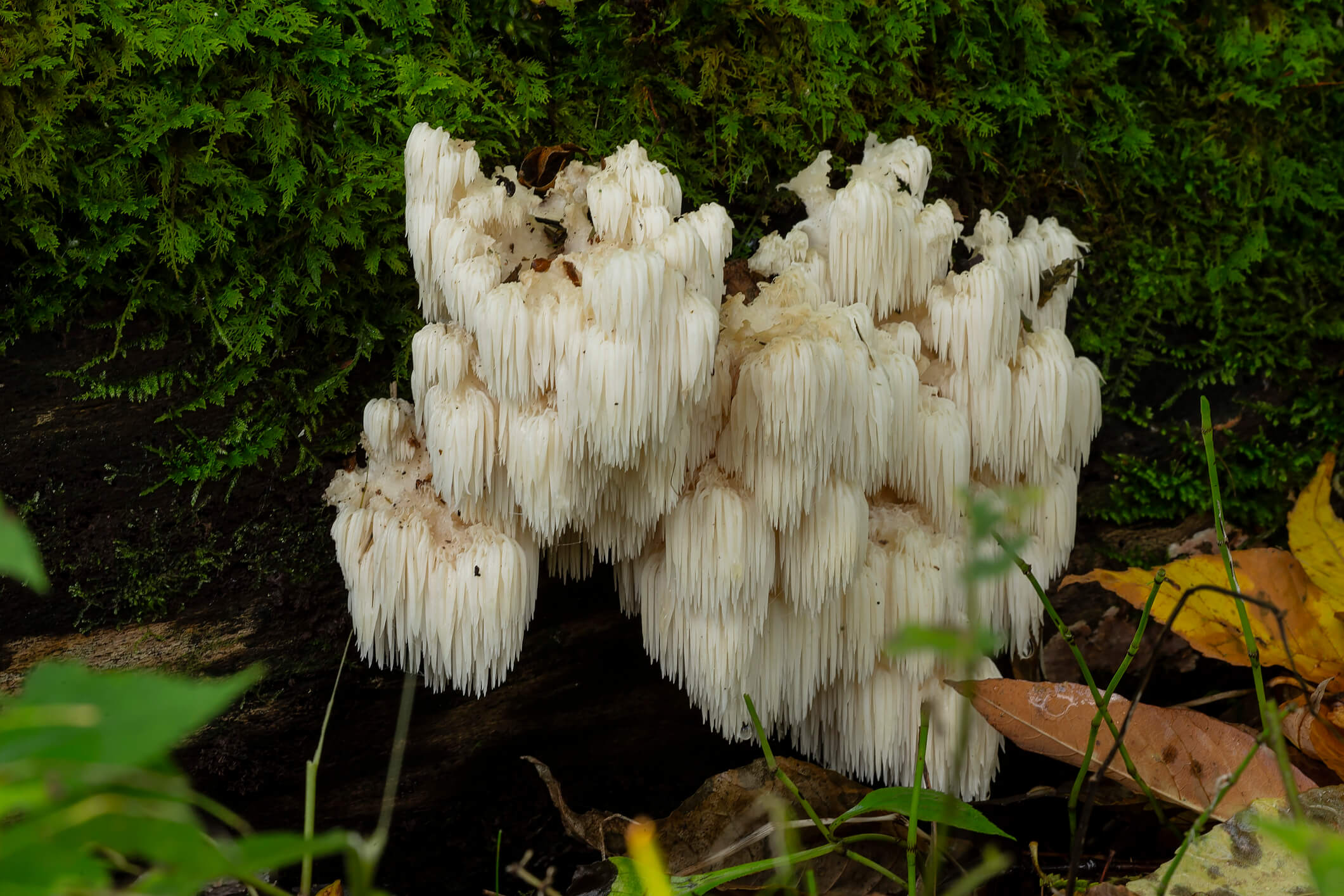Keep Your Mind & Memory Sharp with Nootropic Herbs & Mushrooms
Many people feel like their minds could use a boost. They experience brain fog at work, and it’s becoming harder to recall information from a week ago. While coffee can kickstart your day, it often leads to an afternoon crash that can leave you feeling groggier than when you woke up that morning.
You can improve brain function more effectively with nootropic herbs and medicinal mushrooms. Available in the form of a supplement, these natural ingredients are praised for their ability to support better memory, focus and nerve growth. Below is a quick rundown on nootropics and which ones are best for brain health.
What are nootropics?
Nootropics are substances that improve brain function. They’re available in several forms, including natural supplements and prescription drugs. In fact, many people take nootropics every day without realizing it! Caffeine is considered a nootropic substance because it provides an energy boost and helps you feel more alert.
Nootropics offer a myriad of benefits for brain health. They have the potential to improve focus and memory, which are essential for performing well at work and school. Some nootropics have anti-inflammatory effects that reduce oxidative damage and slow the progression of cognitive disorders. Nootropic mushrooms, in particular, may stimulate nerve growth in the brain and nervous tissue.
Medicinal mushrooms are regarded as powerful nootropics in the holistic medicine world. Instead of using a single compound, they wield synergistic properties to support various aspects of brain health. Each mushroom species contains dozens of natural compounds that work in sync to boost concentration, memory and nerve regeneration. The set of compounds is different for every mushroom species, which helps them provide different benefits.

Herbs and mushrooms for brain health
Coffee isn’t the only option for keeping your mind sharp. Herbs and medicinal mushrooms are natural nootropics that let you skip the jitters and have positive long-term effects on the brain. Here are the most effective nootropics to look for in a daily herbal supplement.
- Ginkgo: Ginkgo leaf extract is a common ingredient among supplements designed to promote brain health. Ginkgo boosts long-term memory and overall cognitive function, making it a very useful herb for achieving high academic or work performance. This herb can also promote a calm state of mind because it reduces cortisol, a type of stress hormone.
- Brahmi: Brahmi is the common name for Bacopa monnieri, a flowering herb with small white petals. Similar to ginkgo leaf extract, brahmi is great for improving memory because it stimulates activity in the hippocampus. The herb protects nerve cells by reducing oxidative stress in the brain, allowing cells to remain healthy well into a person’s later years. Brahmi also has the ability to keep your mind sharp and speed up reaction times.
- Ginseng: While other herbs need months to take effect, ginseng root is known for its short-term effects. After just one dose, ginseng can whisk away fatigue and improve performance on difficult mental tasks. Ginseng possesses anti-inflammatory properties, which in turn protects nerve cells from oxidative stress. With less damage to nerve cells, the brain can stay sharp and improve its long-term memory.
- Lion’s mane: Lion’s mane is a type of medicinal mushroom that’s praised for its multiple benefits in the brain. The mushroom earned its common name because the white, shaggy growth resembles a lion’s mane. This mushroom is added to brain health supplements because it encourages nerve growth—not just in the brain, but throughout the body, as well. Nerve repair and growth is crucial for delaying the onset of degenerative disorders, and this enhanced activity can slow the cognitive aging process.
- Cordyceps: Cordyceps is another type of medicinal mushroom often harvested for its cognitive health benefits. Similar to ginseng, cordyceps reduces inflammation in the brain and protects nerve cells from oxidative stress. Cordyceps is best known for helping brain cells use oxygen more efficiently, which can dispel fatigue and improve concentration during mentally strenuous tasks. Some people take cordyceps before a workout because it boosts athletic performance, too.
- Chaga: Chaga is a medicinal mushroom that possesses bi-directional effects on the immune system. This means it can boost weakened immune systems and reduce inflammatory responses triggered by an autoimmune disease. A regulated immune system is essential for preserving brain health because less inflammation helps the blood-brain barrier remain intact. This barrier prevents toxic substances from entering the brain.
Nootropic herbs and mushrooms are beneficial to everyone, regardless of whether you’re healthy or live with a neurodegenerative disorder. These natural ingredients are generally safe and readily available in the form of supplements at your local drug store. Consult a physician to learn which herbs and mushrooms are best suited for you.


Leave a comment